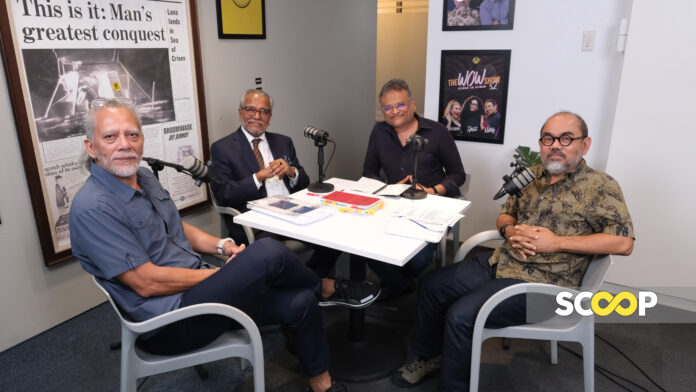
KUALA LUMPUR – The addendum by the Agong granting former prime minister Datuk Seri Najib Razak the opportunity to serve his sentence under house arrest may be unusual but is not without precedent.
Hence those who want to keep Najib behind bars should not pull wool over the eyes of the public, cautioned his lawyer Tan Sri Muhammad Shafee Abdullah.
Citing the case of Kenneth Lee Fook Mun, the grandson of Tun H.S. Lee who was convicted of murdering Linda Lee Good Yew following an accident 24 years ago, Shafee explained that Kenneth was initially sentenced to death.
After receiving a royal pardon from the Agong, Kenneth, who was also Shafee’s client, had his death sentence commuted to life imprisonment.
“After Kenneth’s mother passed away, his father, who was unwell, had no one to care for him. The final [pardons] order was for house arrest.
“So he is known to be a recipient of a similar addendum order, and he served the balance of his imprisonment from his home,” Shafee said during an appearance on the Trick Lama podcast.
The podcast is hosted by Big Boom Media Group’s editor-in-chief Terence Fernandez, group chief executive Datuk Zainul Arifin, and group executive director Datuk Ahirudin Attan, better known by his moniker Rocky Bru.
While there have been arguments suggesting that local laws need to be amended to accommodate house arrest, Shafee pointed out that existing legal provisions can be utilised to enforce the Agong’s addendum.
Specifically, Shafee highlighted Section 43 of the Prisons Act 1995, which allows the Commissioner General of Prisons to release a prisoner on licence under certain conditions.
“These conditions,” Shafee explained, “can include serving the remainder of the prison sentence from their home.
“So somebody tried to pull the wool over our eyes by saying that Section 43 is subject to regulations.
“They forgot the regulation was passed in 2000: Regulation 111 of the Prisons Regulations.”
Watch the full podcast on Spotify below.
Although Shafee did not name those who argued that Section 43 could not be applied to place Najib under house arrest, retired Court of Appeal judge Datuk Hamid Backer has previously said that the Prisons Act could be used in such cases.
On February 2, 2023, Najib received a royal pardon that halved his 12-year prison sentence and reduced his fine from RM210 million to RM50 million.
The sentence was in relation to his conviction for abuse of power, criminal breach of trust (CBT), and money laundering involving RM42 million in funds from SRC International, a former subsidiary of sovereign wealth fund 1MDB.
Najib later claimed there was a supplementary royal decree dated January 29, 2023, allowing him to serve the remainder of his six-year prison sentence under house arrest.
In April 2024, Najib filed a judicial review application at the Kuala Lumpur High Court to compel the government to execute the royal addendum, which was dismissed.
However, the Court of Appeal early this year overturned the High Court decision, granting Najib leave for judicial review. – January 17, 2024



